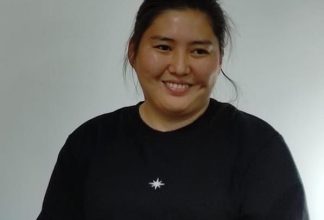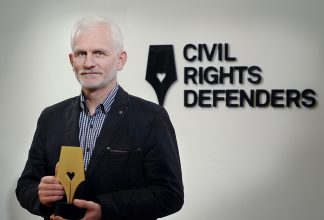Open Letter to Mikael Damberg
In Arabic: Download the letter.
Dear Minister Damberg,
Our organisations welcome Sweden’s interest in increasing criminal accountability for atrocities committed in Syria and Iraq and have noted your initiative to host an international expert meeting today to discuss the establishment of a new international tribunal in the region to handle cases of crimes perpetrated by ISIS and possibly other actors.
Any such effort will confront numerous challenging questions, including its jurisdiction, the scope of prosecutions, the extent to which a tribunal has international and domestic elements, how it is structured and financed, and how oversight is conducted. It will be important to learn from the wealth of past experiences in Iraq, the region, and the world. The Open Society Justice Initiative recently published Options for Justice: A Handbook for Designing Accountability Mechanisms for Grave Crimes, synthesizing lessons for mechanism design based on lessons from 33 past models in 29 countries.
Given our collective experience and expertise, we would welcome the opportunity to engage with you on this initiative to discuss the full range of challenges, and especially lessons that may be particularly relevant to this context. With reference to information provided by the Swedish government, which suggest that the tribunal would only deal with crimes perpetrated by ISIS, we wish to draw your attention to one specific lesson learned.
We would advise against designing any accountability mechanism whose purpose is to deal only with crimes perpetrated by one faction in a conflict. For good reason, the international community has often refused to accede to requests to create such mechanisms—as the United Nations did upon receiving the initial request that eventually led to creation of the Special Court for Sierra Leone (which ended up dealing with multiple factions). ISIS is responsible for horrific atrocities, and it is important that there be accountability for these. However, if a mechanism were designed to overlook atrocities committed by other actors in the conflict, its credibility and legitimacy would suffer greatly, as would chances for reconciliation and efforts to engender the concept of a neutral judiciary.
Civil society organisations, including ours, have actively engaged to ensure justice and accountability for grave crimes committed in Syria, which has resulted in legal action in the US and Europe, including Sweden. Any process to establish international accountability mechanisms need to include civil society organisations, in particular organisations from the region, and draw on their expertise.
We seek to actively engage in the process and look forward to discussing civil society perspectives with you.
Yours sincerely,
Anders Pettersson
Executive Director
Civil Rights Defenders
Andreas Schüller
Program Director
European Center for Constitutional and Human Rights (ECCHR)
Anwar Albuni
Executive Director
Syrian Center for Legal Studies & Researches
Carmen Cheung
Legal Director
Center for Justice & Accountability (CJA)
James A. Goldston
Executive Director
Open Society Justice Initiative (OSJI)
Mazen Darwish
Director
Syrian Center for Media and Freedom of Expression (CSM)
Mohammad Al Abdallah
Executive Director
Syria Justice and Accountability Centre (SJAC)


